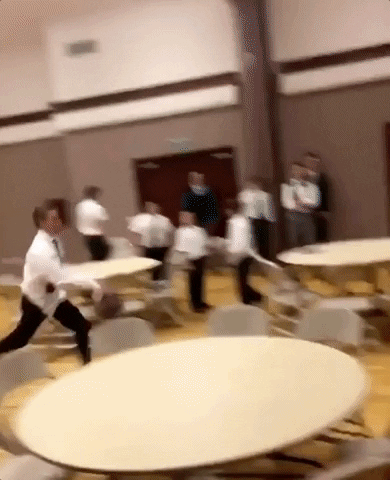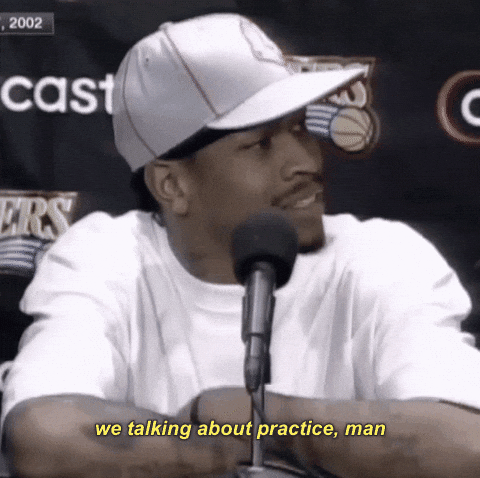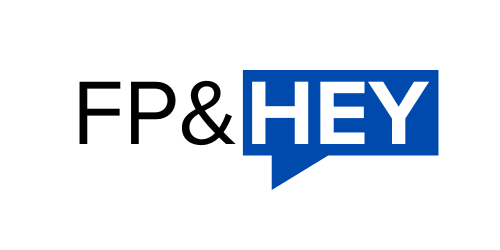👋Hey there,
Who here likes to fail?

No, this isn’t an April Fool’s joke.
Failing leads to serious learning.
It can also lead to serious reputation hits.
And not just for you, but your team too.
Fail responsibly, by failing small and setting you and your team up for controlled failure.
Here’s how.
Listen on
Controlled Failure 101
There’s a difference between failing on the big stage versus in practice settings.

Firefighters are a great example of this.
They spend most of their days and nights training for emergency events.
And when one inevitably happens, they channel what they practiced to navigate accordingly.
Athletes do this too.
Football (American style) teams practice for 40+ hours a week for one 3-hour game.
In FP&A, practice time is rare…unless you make it a priority.
Show Notes
- 00:26 – doing bicep curls while recording a podcast is one way to stay in shape
- 01:01 – controlled failure = allowing your team to take risks and fail while minimizing the consequences
- 02:20 – new hires will fail a lot—help them do that while helping them grow a positive reputation
- 03:45 – create a space that feels like the big game—there’s no experience like game day experience
- 04:50 – don’t expect people to hit the ground running—make it your mission to improve their chances of success
- 05:45 – bridge new analysis with old analysis to help you and your boss understand what changed and why it changed to get buy-in
- 07:50 – confidence compounds over time—make it your mission to instill confidence in your team early and often
- 09:15 – great football players (even Tom Brady) need teams to succeed—you as an FP&A leader are no different

- 09:55 – invest in leveling up your team and retaining top talent
- 10:30 – great ideas are out there to do things better—pay attention and ferociously learn about them
- 11:15 – challenge yourself to learn one new thing each day—that learning will compound over time
- 11:55 – wrapping things up—practice controlled failure to build skills, build confidence, build high-performing teams that consistently improve
Practice?
Just listen to how the greats achieved greatness.
Michael Jordan was known for his intense practice sessions.
Tom Brady and the Patriots preached no days off.
And Allen Iverson….well, he’s apparently an anomaly.

But how can you practice in a profession (FP&A, Accounting, Finance, BI, RevOps…all things Corporate) with game days every hour of every day?
Team Leaders Set the Practice Tone
Here are a few ways you, as a Manager and Leader, can create practice habits:
- Members learn one Excel shortcut each week (makes you and your team faster)
🔥TIP: Here are some Excel shortcuts you can start with.
- Have rotating members of your team send weekly sales executive summaries every Monday to the group (sharpens communication skills)
- In your weekly team meetings, create time for one member to present a topic of their choice (improves presentation skills)
🔥TIP: Here’s how to present financial info.
And provide feedback each time.
What went well?
And what can they improve upon?
Invite non-team members to your team meeting from time to time and get their feedback too.
🔥TIP: Feedback is a gift, here’s a framework to process it.
It’s a safe space to mess up.

This is what controlled failure environments look like.
Watch Your Team Get Better Each Week
Once the practice tone is set, watch how your team progresses.
- Your team will become the go-to for Excel help
- Your team will become the guru of weekly sales reporting
- Your team will be the go-to crew for presenting financial information on the fly
Because they’ll practice these skills each week.
And you’ll ensure your boss (or guests attending your team meetings) takes notice.

Which leads to big stage opportunities.
Where you and they will be as prepared as possible to shine.
Conclusion: Fail, Improve, Crush Opportunities
We all make mistakes.
Learn from them and make yourself (and your team) better.
Setting you and your team up for failure in controlled settings will help get some serious reps in (and some failure out of the way too).
This improves your chances of succeeding on whatever big stage opportunity you get.
How do you practice your FP&A craft?
Share your experiences with us by replying to this. We read and reply to every email.
Now go have fun making an impact on your business and your career!
See you next time 👊
Cheers,
Drew & Yarty
👉Follow us on LinkedIn

Disclaimer: This content is not investment advice or financial advice. The views expressed and stories told are our own. We may be investors in the companies discussed. Do your due diligence when considering applying what you learn.



